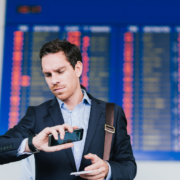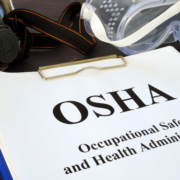January 7, 2025 — Press Release
15 Million Americans Will See Credit Scores Improve
Washington, DC– Today, the Consumer Financial Protection Bureau (CFPB) finalized a rule to stop the harmful impact of medical debt on consumers’ credit scores. The rule will stop credit reporting companies from sharing medical debts with lenders and prohibit lenders from making lending decisions based on existing medical debt.
“Medical debt has damaged the financial record of tens of millions for far too long, causing credit rejections and pushing costs even higher for Americans struggling financially,” said Chi Chi Wu, senior attorney at the National Consumer Law Center. “The CFPB continues with its impressive record of protecting consumers, providing critical relief to the 15 million Americans with unjustly lowered credit scores due to medical debt.”
Even though medical debt has minimal predictive value in forecasting about whether people will pay their loan payments, vast amounts of medical debt information remains in the credit reporting system. Medical debt unjustly damages the credit scores of millions, limiting their ability to obtain affordable credit, rent safe housing, or even get a job. It also assists debt collectors in seeking to coerce payments, including for inaccurate or false medical bills.
The big three credit reporting agencies (Equifax, Transunion, Experian) voluntarily removed some medical collections information starting in 2022, but in 2024 the CFPB found that 15 million Americans still had more than $49 billion in outstanding medical debt on their credit reports. Consumers left behind by industry efforts were more likely to live in the South and in predominantly Black and Latino/Hispanic neighborhoods.
“Today’s medical debt rule will lessen the financial burdens for all households, but particularly for Black and Latine families, who carry more medical debt due to decades of intentionally racist policies and practices across health care, employment,housing, education, and financial services,” said Amanda N. Jackson, consumer campaign director for Americans for Financial Reform. “A good credit score is critical for participating in the U.S. economy, and this rule will continue to help lessen the negative credit impacts of medical debt.”
This rule is part of a larger initiative by the CFPB to address hidden junk fees charged by banks and financial companies that disproportionately impact low-income consumers. Since its formation, the CFPB has obtained over $21 billion in relief for over 205 million people. Despite its success and its popularity with the public, the agency’s future is at risk. Most recently, advisors to the President-elect have called for the CFPB to be shuttered. The medical debt credit reporting rule itself could also be overturned by Congress using the Congressional Review Act (CRA), which allows Congress, with the President’s signature, to overturn new regulations.
“The medical debt rule shows how important the CFPB is to working people who are losing ground to corporate profiteering,” said Lauren Saunders, associate director at NCLC. “Working class folks must speak up to ensure the CFPB’s rule to limit medical debts on credit reports, and the CFPB itself, survive attacks by corporate America.”
The final rule does not apply to medical debts on credit cards, including specialized credit cards, which advocates had urged the CFPB to include. It also does not apply to credit reports used for non-lending purposes, such as employment and tenant screening
“Medical debt shouldn’t harm credit records regardless of how it shows up,” said April Kuehnhoff, senior attorney at NCLC. “And it shouldn’t damage the ability of Americans to get a job or an apartment.”
Additional Quotes
“When banking gets mixed up with health care, it causes a lot of heartache,” said Adam Rust, director of financial services for the Consumer Federation of America. “The CFPB’s new rule places a sensible boundary between the two. People often pay medical debt they know they do not owe to protect their credit scores. Others avoid seeking medical care, fearing it will harm their creditworthiness. The new rule means that medical debt collectors cannot weaponize the credit reporting system to their advantage, and sick people will not forego treatment just because they want to borrow money in the future.”
“The crushing financial burdens of medical debt should not continue to undermine people’s ability to take out a loan or qualify for a mortgage,” said Christine Chen Zinner, senior policy counsel at Americans for Financial Reform. “While today’s rule will help over 100 million people saddled with medical debt, this rule will critically lessen the negative credit impacts stemming from decades of racist housing, employment, healthcare, and other policies and practices that have left Black and Latine households with higher amounts of medical debt.”
“With this rule requiring removal of medical bills from credit reports, the CFPB protects millions of medical debt-strapped Americans from certain additional financial struggles triggered by the archaic credit reporting system,” said Christine Hines, senior policy director at the National Association of Consumer Advocates.
“Finalizing this rule is a big win for Mainers and people all over the country,” said Nora Flaherty-Stanford of Maine People’s Alliance. “More than 40% of Mainers say they’ve taken on medical debt in the last five years, and for most of them, it’s still hanging over their heads. We all know that’s not right, and as we celebrate this good news, we’re calling on our members of Congress to stand strong in supporting this rule and the CFPB.”
“Someone’s history of unexpected medical debt has no correlation with their willingness or ability to repay future bills, so it should have no bearing on a person’s access to credit, an apartment or a job,” says Ruth Susswein, Consumer Action’s director of consumer protection.
“Medical debt burdens millions of families across the country and can unfairly tarnish a person’s credit record, making it more difficult to qualify for an affordable loan, get a job, or even rent an apartment,” said Chuck Bell, advocacy program director for Consumer Reports. “Many consumers have medical debt on their credit reports that is inaccurate or under dispute because our medical billing and insurance reimbursement system is so complex and confusing. No one’s credit record should be ruined by medical debt since it’s not a reliable predictor of credit risk. The CFPB’s ban on medical debt reporting provides critical protection to consumers and will help ensure they can get the health care they need without fearing that their credit record will be damaged beyond repair.”
“This new rule is good news for at least 14 million people – including financially responsible families that have accumulated medical debt from unpredictable health issues, high out-of-pocket costs, insurance claim denials and billing errors,” said Patricia Kelmar, senior director of health care campaigns for U.S. PIRG. “We’ve known for years that medical debt is not predictive of credit-worthiness. The new rule builds on the CFPB’s important work on medical debt reporting and is yet another example of how the CFPB protects consumers from unfair practices.”
“Banning the reporting of medical debt will end the weaponization of credit reporting against those who are unlucky enough to get sick or injured and run up bills they cannot afford to pay,” said Renée Steinhagen, executive director, New Jersey Appleseed Public Interest Law Center and a member of the NJ for Healthcare Coalition. “Thanks to the new CFPB rule, they need no longer worry about their credit being ruined, which can make it harder to buy or rent a home or a car or even interfere with getting a job.”
“One in five New Jerseyans struggle with repaying medical debt,” said Beverly Brown Ruggia, Financial Justice Program director at New Jersey Citizen Action. “In a nation where good credit is essential for accessing housing, employment, and even medical care itself, it is unconscionable that anyone should face financial ruin and lose access to these basic necessities simply because they or a family member got sick. With this rule, the CFPB has stepped in once again to protect the most vulnerable among us from unfair treatment and potential financial devastation.”
“This landmark rule ensures consumers are no longer unfairly penalized for medical debt,” said Jennifer Holloway, staff attorney leading the Medical Debt Project at Tzedek DC. “By removing medical debt from credit reports, the CFPB helps individuals and families access housing, employment, and credit opportunities and advances racial and disability justice. This rule recognizes that access to medical care should not result in lifelong financial setbacks and will improve patients’ well-being by reducing stress and anxiety. Ultimately, this is a vital step toward supporting healthier and more financially secure communities.”
“The magnitude of medical debt in America is crippling:100 million Americans carry medical debt that is not caused by profligate spending, but often by medical emergencies. Thus punishing Americans who carry this debt by harming their credit scores, forcing them to turn to predatory lending if they need a car or home loan multiplies the harm,” said Sally Greenberg, chief executive officer at National Consumer League. “The CFPB’s rule stopping credit reporting agencies from sharing medical debt with lenders will prevent adding to the burden of the 15 million Americans with lowered credit scores due to medical debt. NCL supports this important rule.”
“This rule is a significant win for struggling Maryland families,” said Marceline White, executive director of Economic Action Maryland Fund (Economic Action). “More than 876,000 Maryland households have a medical debt they are unable to repay. No one should have their credit downgraded because they or a loved one fell ill and sought medical care.”
“NALCAB – the National Association for Latino Community Asset Builders applauds the Consumer Financial Protection Bureau (CFPB)’s final rule banning medical debt from credit reports. According to a report by the Urban Institute, adults who live in communities where the majority of the population are people of color are more likely to have medical debt in collections reported on their credit reports. Today’s announcement will help boost the economic trajectory of Latinos and therefore further stimulate economic growth,” said Clarinda Landeros, Director of Public Policy, NALCAB.
“As we work to create a country where healthcare is a human right, we must eliminate the many burdens of a healthcare system that puts profit over people,” said Katie Goldstein, Director of Housing and Healthcare Campaigns at Popular Democracy. “Too often, our people risk financial ruin when they seek medical care due to high costs and long term medical debt that impacts credit ratings and makes it more difficult to secure housing and employment. By eliminating medical debt from credit scores, today’s much-needed CFPB ruling will ease some of these barriers, will protect folks from predatory debt collectors, and will encourage more people to seek medical care with less fear of financial repercussions.”
“The National Fair Housing Alliance applauds the Consumer Financial Protection Bureau (CFPB)’s final rule banning medical debt from credit reports,” said Nikitra Bailey, executive vice president of the National Fair Housing Alliance. “Medical debt devastates the budgets of millions of families, especially those living in the South making it difficult for people living in the region to secure quality credit opportunities to purchase a home, start a business, or finance a car to get to work. It also disproportionately impacts Black and Latino consumers who are more likely to lack wealth to immediately address surprise medical expenses because they were long denied fair housing and lending opportunities. These medical debts can then result in collections reported on their credit reports, although the medical debits are not an accurate reflection of the consumer’s ability or willingness to repay debts. The CFPB’s final rule will help provide a more equitable path to access to credit and therefore further stimulate economic growth, especially in the South.”
“It surprises Alaskans when health insurance fails to protect them from the extremely high costs of healthcare in our state,” explained Claire Lubke, economic justice lead at Alaska Public Interest Research Group. “All it takes is an accidental visit to an out-of-network provider and we end up in a situation where 40% of Alaskans are holding medical debt, including military members and those with access to tribal health services. Allowing medical debt on credit reports punishes Alaskans for receiving medical care they need and often don’t realize is uncovered until it’s too late. AKPIRG commends the CFPB for improving access to necessary financial services for Alaskans who are working hard to overcome medical debt.”
“Medical debt often stems from unpredictable, unavoidable circumstances and shouldn’t stop access to financial opportunities. In Oregon, 30% of residents have incurred medical debt in the last two years. Of those residents, 85% report significant impacts, from increased stress and anxiety to financial hardship and delayed medical care. Oregon Consumer Justice applauds the Consumer Financial Protection Bureau for finalizing this vital rule addressing medical debt on credit reports,” says Jagjit Nagra, executive director of Oregon Consumer Justice. “This rule is a critical first step in protecting consumers and promoting financial equity. In Oregon’s upcoming legislative session, we look forward to championing legislation that will further extend this rule’s impacts to exclude medical debt in employment and tenant screening and medical debt incurred using medical credit cards.”
“This rule not only relieves patients and their loved ones from the financial burden of medical debt on their credit reports, but also relieves them from the real and harmful physical and mental impacts of medical debt on their health,” said David Zhao, Equal Justice Works Fellow, sponsored by Amgen Inc. and Munger, Tolles & Olson LLP, at Public Counsel. “In Los Angeles, one in ten adults is substantially burdened by medical debt, leading them to be 2-3.5 times more likely to be food insecure, forgo prescriptions, and be unstably housed. Under the CFPB’s new rule, patients can break the cycle of delaying further medical care due to the stress and anxiety of having their medical bills show up on their credit reports.”
Related Resources
- Press release: White House Efforts Will Reduce Medical Debt, Protect Consumers from Harmful Debt Collection, Oct. 1, 2024
- Report: Medical Debt Behind Bars: The Punishing Impact of Copays, Fees, and Other Carceral Medical Debt, Sept. 6, 2024
- Press release: 100+ Groups Support the CFPB’s Removal of Medical Debt From Credit Reports, Aug. 12, 2024
- Press release: CFPB Proposes Banning Medical Debt from Credit Reports, June 11, 2024
- Press release: CFPB Report Confirms Credit Reporting of Medical Debt is a Racial Justice Issue, Apr. 30, 2024
- Model Medical Debt Protection Act, Mar. 6, 2024
- Press release: Consumer Bureau Announces Groundbreaking Plan to Protect Americans from the Devastating Effects of Medical Debt, Sept. 21, 2023
- Report: Health Care Plastic: The Risks of Medical Credit Cards, Apr. 27, 2023
- Report: The Racial Health and Wealth Gap: Impact of Medical Debt on Black Families, Mar. 9, 2022
























